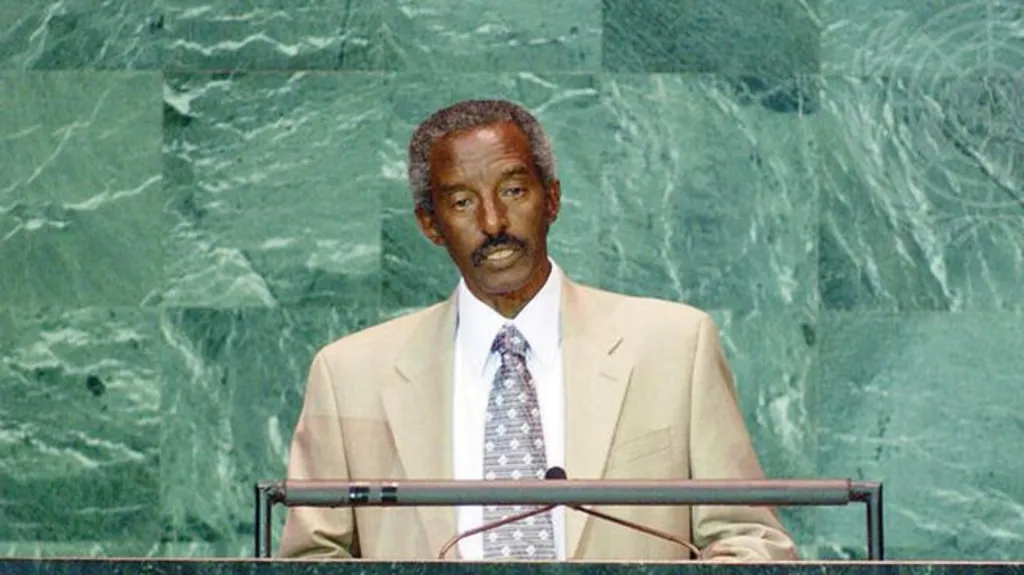Berhane Abrehe – a former Eritrean finance minister and fierce critic of the country’s president – has died in prison, his family say.
The 79-year-old was Eritrea’s longest serving minister of finance, but he was removed from his role in 2012 following clashes with President Isaias Afwerki.
Six years later, he was jailed after releasing a book where he described the president as a “dictator” who needed to resign.
His family told that the authorities, who rarely confirm the deaths of senior officials in custody, had notified them of Mr Berhane’s death.
The government also rarely shares where the bodies are buried but Mr Berhane’s family have heard there is a plan to bury him in Asmara Patriots Cemetery. Only veterans of the Eritrean independence war, like Mr Berhane, or members of the national service can be buried there.
His body has not yet been released, his family said, and it is not clear when and exactly how Mr Berhane died.
He was never brought before a court of law.
Jailed without trace in Eritrea: ‘I haven’t seen my parents for 17 years’
I fought for independence but I’m still waiting for freedom
Why Eritreans are at war with each other around the world
President Isaias has ruled the East African country, without holding national elections, since winning the independence war against Ethiopia in 1991.
Political parties, civic organisation and independent media are all banned.
The UN and human rights groups have long accused the Eritrean government of gross human rights violations, including torture, forced disappearance and the imprisonment of tens of thousands of people in inhumane conditions.a
Mr Berhane’s fall-out with President Isaias began during the former’s 12-year tenure as finance minister, in which he urged Mr Isaias for transparency on the country’s budget. The budget is still inaccessible to the public today.
In 2012, Mr Berhane was removed from his post and sidelined from politics.
Three years later he secretly wrote a two-volume book named My Country, and sent it abroad to be published.
Alongside calling his old boss a dictator and demanding he resign, Mr Berhane used the book to challenge Mr Isaias to a debate on national television.
He also called for the reinstatement of the national assembly – Eritrea’s parliament – which had been dissolved by the president in 2002. To this day, there is still no legislative body to hold the government accountable.
In 2018, after Mr Berhane had published My Country, he was detained and imprisoned in an unknown location.
By this time his wife was already in prison, although no reason was given. She was released in 2019.
One of Mr Berhane’s sons, who was also detained during the same period as his mother, previously described his family’s ordeal to the BBC.
“I am living with a dim glimmer of hope that my father who has health issues [will be out of prison one day],” Efrem Berhane said in 2020.
The 31-year-old, who lives in the US after fleeing Eritrea, asked: “How can people be kidnapped by a government and disappear for years? Why do people show such cruelty on a fellow human like this?”
But some people have been imprisoned for even longer.
In September 2001, 11 senior ministers and generals who were part of a group known as the “G-15” were arrested after they criticised the president. The collective – which included three former foreign ministers, an education minister and a former armed forces chief of staff – have not been seen since.
In Eritrea, political prisoners are often prohibited from contact with the outside world.
In February, Ilze Brands-Kehris, United Nations Assistant Secretary General for Human Rights said “impunity persists” for human rights violations in Eritrea.
“Our office continues to receive credible reports of torture; arbitrary detention; inhumane conditions of detention; enforced disappearances; restrictions of the rights to freedoms of expression, of association, and of peaceful assembly,” she said.
Born in Eritrea in 1945, Mr Berhane earned an MA degree in economics from a US university before joining the struggle for independence from Ethiopia.
He is the father of four children.
